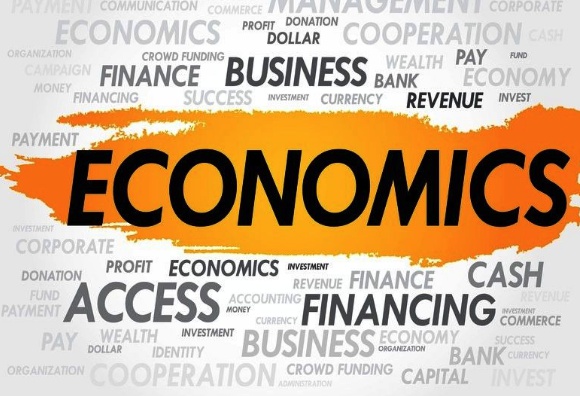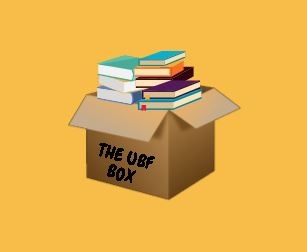Best Economics Books to Buy, A Guide For Beginners & University Students

As a third-year university student studying economics and psychology, today I would like to introduce these fields and give some book recommendations for those who are interested in buying books in the field of economics. As a person who enjoys reading and buys so many books all the time, I always prefer to buying second hand books, and usually sell those books when I finish. I highly recommend buying these books I will mention second hand and online, since it would be more convenient, helping save money and time.
Economics
As a general definition, economics deals with the production, distribution, and consumption of goods and services. The field of economics focuses on the behavior and interactions of economic agents. There are many interesting topics under economics, such as microeconomics, macroeconomics, development economics, labor economics health economics, etc. If you don’t have any prior knowledge about economics and want to learn more about it, you can check out the American Economics Association webpage and this Guide to Economics
Economics Book Recommendations
1. Freakonomics by Stephen J. Dubner and Steven Levitt
2. Thinking, Fast and Slow by Daniel Kahneman
3. Misbehaving: The Making of Behavioral Economics by Richard H. Thaler
5. Naked Economics by Charles Wheelan
7. An Inquiry Into the Nature and Causes of the Wealth of Nations by Adam Smith
8. Capital: A Critique of Political Economy by Karl Marx Marx
1. Freakonomics by Stephen J. Dubner and Steven Levitt
Freakonomics has been described as one of the foremost popular economics books of all time- more than 4 million copies sold to this time. You should definitely buy this book, even if you don’t have any prior background in economics I guarantee that you will not regret it. The language is fluent, there are not many technical terms, the content is very interesting. It could be described as a mix of sociology and psychology with economics. Freakonomics answers unique questions that nobody thought to ask, the primary of its kind, and it manages to both amuse you. You will start seeing the world from a whole new perspective after this book. It is available almost anywhere, you can buy Freakonomics book online, the book stores, as an audiobook, or you can buy this book second hand to save some money. If you are not a book person, I recommend checking out their podcast, or the movie. If you want to learn more about this masterpiece, you can check out their website.
2. Thinking, Fast and Slow by Daniel Kahneman
Thinking, Fast and Slow has been one of my favorite non-fiction books. Besides being the author of a New York Times bestseller book, Daniel Kahneman is also a Nobel winning psychologist. This book explores the world of behavioral economics, combines economics with psychology, explains the irrational decisions we make in our everyday lives without even being aware of it. It explains why human beings are prone to make irrational decisions, what decisions we make, and how we should take into account this irrationality factor when thinking about economics. From everyday decisions to huge business deals, this book explains the reasons we are prone to make mistakes when making decisions. You can also buy this book online, in-store, or second hand. If you are interested in purchasing these kinds of books, you can take a look at behavioral economics and buy some books in that field. The Armchair Economist: Economics and Everyday Life by Steven E. Landsburg In this interesting book, Steven Landsburg suggests a conversational idea, he says that economics can be explained by just 4 words: people respond to incentives. The book then explains the economical concepts in an understandable way, as well as indicating how it affects our daily lives. It also takes into consideration of some economic policies and their effects. This is a great introductory book to buy if you don't have a background in economics.
3. Misbehaving: The Making of Behavioral Economics by Richard H. Thaler
Misbehaving: The Making of Behavioral Economics is another very interesting book in the field of behavioral economics. In this book, Thaler examines the irrationality of decision makes, in other worlds, people. He examines how the "rational actor” approach in neoclassical economics fails to explain reality. He argues, in neoclassical economics, the assumption of rational decision making causes the failure of economic theories in real life settings. Although this is a very complex topic, Thaler manages to make it engaging. He often uses anecdotes from his own life. An example was that he says his students often complain that the test was too difficult when the class average is 72/100. However, they never complain when the tests are made out of 137 points and the average happens to be 90/137, even though they are mathematically almost equal. He suggests, his students feel better when they get 90/137 compared to 72/100 even though they are basically almost the same. Even though this is just a small example, Thales talks about how human decision-making and irrationality affect our lives that appear no matter how large or small a decision is. With the anecdotes, engaging style, and very interesting topics it explains, Misbehaving will be one of those economics books you will enjoy the most. Just like Freakonomics, Misbehaving is also available in stores or online, you can probably purchase it second hand too.
4. The Bottom Billion: Why the Poorest Countries are Failing and What Can Be Done About It by Paul Collier
This is fundamental if you have an interest in politics, development economics, and international development. As it could be understood from the title, the book explains poverty, conditions in less developed countries, and how they end up failing. It also suggests ways to improve these contraries, how to get them out of the poverty trap, the policies that might be implemented. He provides detail-oriented, hands-on solutions to the problems in less developed areas of the world. The Bottom Billion is a must-read if you ever wondered about economic inequality, how come the world is so unfair, and why there is such a gap between developed and less developed economies. I hardly recommend buying this book to those who are not only interested in economics but those who study political science, public policy, international development, or related subjects.
5. Naked Economics by Charles Wheelan
Naked Economics is one of the most fun introductory books in the field of economics. Wheelman explains the most fundamental concepts in the field of economics in a very fun, engaging, and simple way. As it says on the back cover, this book can be seen as an “investment" rather than just a read. It covers the basic concepts with real-life examples, as well as covering contemporary topics in the American economy such as answering questions like how was the 2008 crisis managed. I strongly recommend buying this book to those who want to learn more about economics but somehow feel intimidated by it or have a sense that it might be a boring topic to read. I can ensure you that you will read this book with a lot of pleasure, even recommend it to some of your friends! You can still buy this book from almost anywhere online or in-store, but I strongly recommend looking at second hand options. Since it is such a popular book, it would be easier to find it online, and buying it second hand would help you save money.
6. The Basics of Bitcoins and Blockchains: An Introduction to Cryptocurrencies and the Technology that Powers Them by Anthony Lewis
If you watch the news or check on social media, you are probably aware of the rise of cryptocurrency in the last several years. Besides being a very popular phenomenon, Bitcoin is more than just something that keeps getting more value in the market, it is actually seen as an inevitable future of the market. The Basics of Bitcoins and Blockchains explains everything you need to know about Cryptocurrencies, from the technology behind them to ways to buy Bitcoin. the book also covers other currencies than just Bitcoin such as Ethereum. If you ever thought of investing in Cryptocurrency, you must buy this book to have a more clear understanding of what it is and why it is important. It is not as much popular as some of the other books on the list here, so I recommend checking out online options to buy this fundamental book on Cryptocurrencies. If don't know about cryptocurrencies and want to learn more about them I recommend this article.
7. An Inquiry into the Nature and Causes of the Wealth of Nations by Adam Smith
This might be a bit though reading if you are a beginner but I believe everyone who has an interest in economics should read this iconic book. Adam Smith's book was published two hundred and fifty years ago and it is still one of the most essential books in the field of economics. It was written shortly after industrial evolution was taking place. The book talks about labor allocation, free markets, how to become productive, and thoughts on productivity. It offers a lot more than a bunch of dull economic theories- this book actually leads you to think critically, analyzing, and changes your mindset. I would have to admit that this is not going to be the most fun and smooth reading you will ever do. In fact, I must add that this is the most challenging text for me in this list, therefore I do not recommend it to beginners. However, I must say that every person who has an interest in economics beyond the introductory level should read this. The ideology and ideas behind this book have been still discussed, and influence the application of economics today. You may not be able to fully understand it on your first try, and it's fine! Just try not to give up, it’s definitely worth it. If you are an economics student and still haven’t read it, I recommend you to buy this book immediately. It is also available in Used Books Factory. Click to buy a second hand of this book online.
8. Capital: A Critique of Political Economy by Karl Marx Marx
Capital: A Critique of Political Economy is an essential addition to your reading list. Besides being incredibly important in the world of Economics and political science reading Capital will let you have an idea about the opposing views on Adam Smith’s Wealth of Nations. Reading these two books and then actually thinking about these two opposite views will definitely improve your critical thinking and analytical skills. As I said on Wealth of Nations, this book is not the easiest one to read, but it will definitely worth it. Capital: A Critique of Political Economy and Wealth of Nations have been 2 fundamental books in the field, so reading one after another and actually understanding the concepts will help you have the core economic interpretation skills and principles. I recommend buying this book online, second hand from Used Book Factory due to its affordable price. Click here to check it out.
In conclusion, even though it is a scientific field and it can get very complicated, I believe every person should at least have a basic understanding of what it is and how it works in today's world. I tried to include the popular books that I have really enjoyed reading for those who are new to the field, as well as the most essential books. As I mentioned before, I generally prefer buying second hand books and textbooks, however, if you want to buy these books on the list in any other way, such as online or from the store, I believe they should be available pretty much anywhere and in many languages since they are among the most common books in the field.



Comments